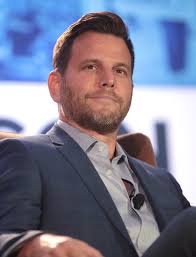
Introduction
In today’s politically charged environment, figures such as Dave Rubin play a significant role in shaping public discourse. As a prominent political commentator, author, and host of “The Rubin Report,” Rubin has amassed a considerable following both online and offline. His perspectives contribute to the evolving dialogue surrounding political ideologies, free speech, and societal issues, making him a relevant figure in contemporary discussions.
Rise to Prominence
Dave Rubin began his career in entertainment and stand-up comedy before transitioning into political commentary. He gained national attention through his YouTube channel, where he hosts discussions with a variety of guests, including politicians, activists, and fellow commentators. Rubin’s candid and often contrarian viewpoints have attracted a diverse audience, resonating particularly with those feeling disenfranchised by mainstream media narratives.
In recent years, Rubin has also made headlines for his critique of political correctness and perceived liberal orthodoxy. He positions himself as a classical liberal, advocating for free speech, individual rights, and open dialogues, which he believes are essential in a democratic society.
Controversial Discussions
Rubin’s style often involves challenging conventional ideas and sparking debate on sensitive topics. His interviews frequently delve into issues surrounding identity politics, the role of universities in shaping young minds, and the implications of cancel culture. This willingness to engage with controversial subjects has garnered both praise and criticism. While supporters commend his bravery in addressing overlooked perspectives, detractors argue that his approach can sometimes oversimplify complex issues.
Impact and Significance
Dave Rubin’s influence extends beyond merely hosting discussions; he is an active participant in the growing movement advocating for free speech across platforms. With social media algorithms increasingly shaping the information landscape, figures like Rubin are essential in countering mainstream narratives and encouraging dialogue among differing viewpoints.
Conclusion and Future Outlook
As society continues to navigate the intricacies of free expression and the challenges of political polarization, Dave Rubin’s work will remain significant. Whether through promoting discussions that challenge established norms or advocating for greater tolerance of dissenting views, he contributes to a broader conversation that aims to bridge divides and foster understanding. For readers interested in the intersection of politics, culture, and the media landscape, following Rubin’s work offers insights into the evolving dynamics of modern discourse.



